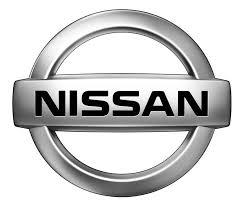Altima 2.5 SL L4-2.5L (QR25DE) (2002)
/Page-1911002.png)
Caliper
CYLINDER BODY
CAUTION: Use brake fluid to clean. Never use mineral oil.
-
Check inside surface of cylinder for score, rust, wear, damage or presence of foreign materials. If any of the above conditions are observed,
replace cylinder body.
-
Minor damage from rust or foreign materials may be eliminated by polishing surface with a fine emery paper. Replace cylinder body if necessary.
TORQUE MEMBER
Check for wear, cracks or other damage. Replace if necessary.
PISTON
CAUTION: Piston sliding surface is plated. Do not polish with emery paper even if rust or foreign materials are stuck to sliding surface.
Check piston for score, rust, wear, damage or presence of foreign materials. Replace if any of the above conditions are observed.
SLIDE PIN, PIN BOLT AND PIN BOOT
Check for wear, cracks or other damage. Replace if any of the conditions are observed.
Rotor
VISUAL INSPECTION
Check rotor for roughness, cracks or chips.
RUNOUT
1. Secure rotor to wheel hub with at least three nuts (M12 x 1.25).
2. Check runout using a dial indicator.
Make sure that wheel bearing axial end play is within the specifications before measuring.
3. Change relative positions of rotor and wheel hub so that runout is minimized.
Maximum runout: 0.07 mm (0.0028 inch)
4. If the runout is still out of specification, turn rotor with on-car brake lathe ("MAD, DL-8700", "AMMCO 700 and 705" or equivalent).
THICKNESS
Check thickness using a micrometer.
Thickness variation: Maximum 0.015 mm (At least 8 Positions) (0.0006 inch)
If thickness variation exceeds the specification, turn rotor with on-car brake lathe.
Rotor repair limit: 22.0 mm (0.866 inch)
ASSEMBLY
1 of 2
